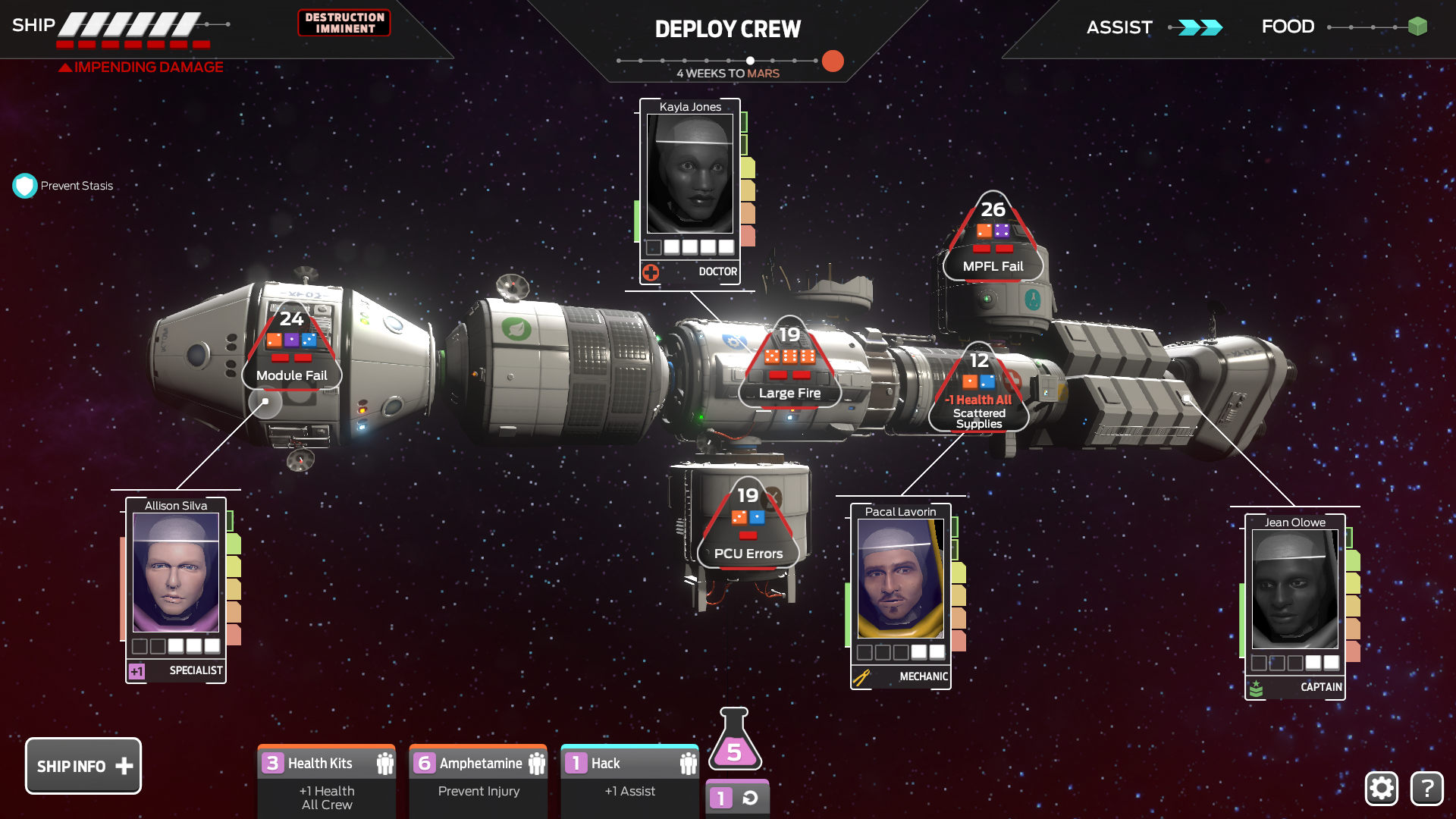
The good: Heart-stopping dice rolls, deficit planning, asymmetric cannibalism, brutally difficult decision-making
The bad: Brutally difficult decision-making
Bottom line: A brilliant board-game-like exercise in strategic perfection
Tharsis, a turn-based space strategy game for PC and PlayStation 4 by the folks who gave us the quirky Bit.Trip series, will probably break you. It nearly broke me.
Not because its blackly comic 10-round death march to Mars doesn’t work. There’s just no margin for error. I’m not exaggerating for effect. I mean literally zero. I can count the number of games that took me this long to figure out on one finger, and then only after playing Tharsis.
So far, I’ve made it to Mars twice. That’s out of 30 games that took about 20 minutes a piece. My spaceship – it looks like 2001: A Space Odyssey‘s baton-like Discovery One – pulls into orbit, then jettisons its command module, which promptly explodes. That’s not supposed to happen. But Choice Provisions’ throws one last wrinkle at players who manage to crawl bloodied and cursing to the finish line, a perverse closing hurdle that pops up like a sadistic anti-deus ex machina with a knife twisting Nelson-from-The-Simpsons “Ha ha!”
Fail that last test, and it’s goodbye Mars, hello void-spinning space junk.
It’s just the sort of game Tharsis is. Let me cushion all this difficulty scaremongering by stating that the game is completable. I know another critic who’s done it, and by god, I plan to someday myself. But let me also say that just making it to Mars orbit or figuring out how to routinely clear 1,000 points per game feels like winning Olympic gold.
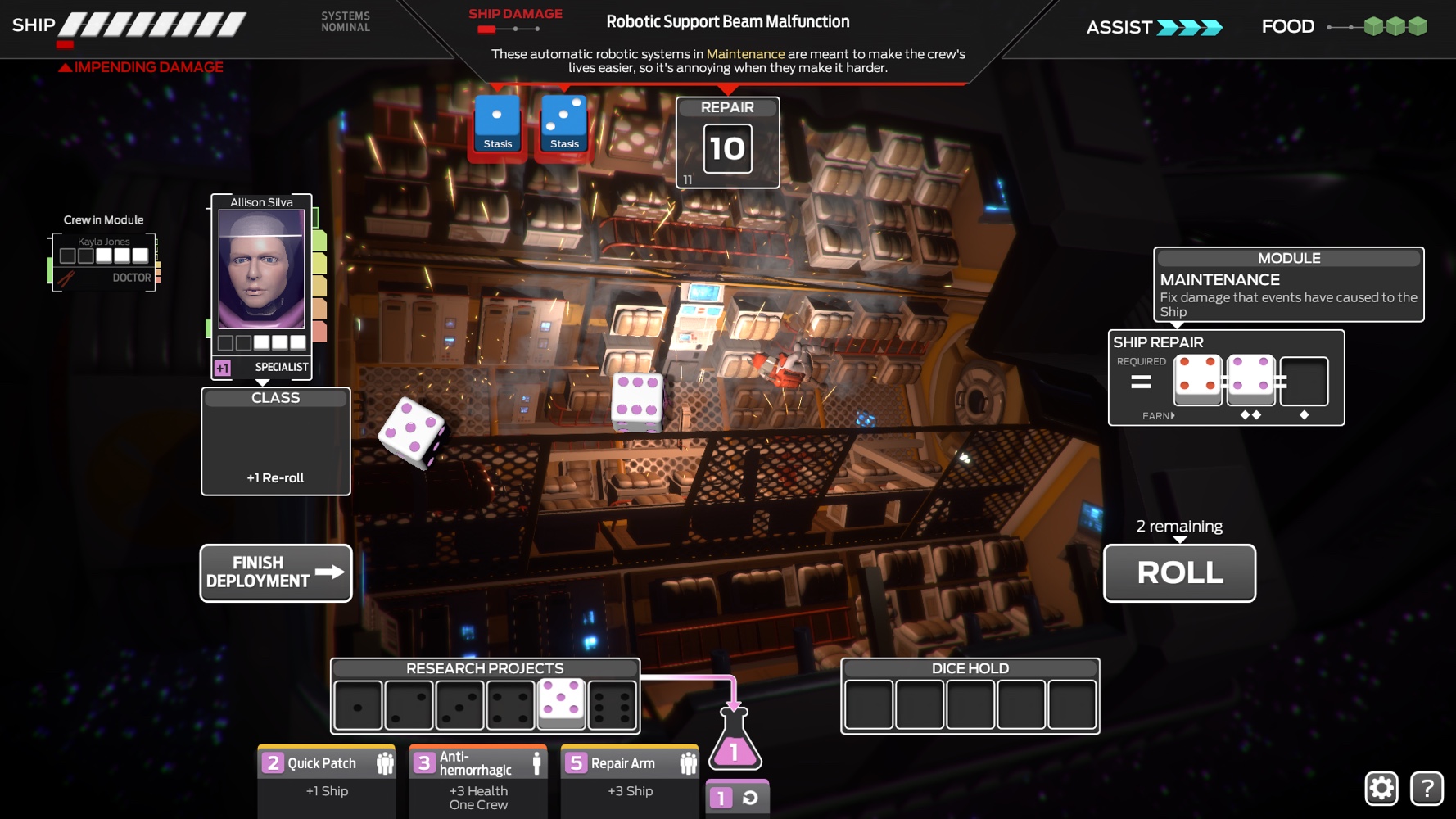
Tharsis looks like a dice-driven board game, where the board is the ship split into eight modules sporting names like “greenhouse” or “medical bay” or “operations,” each corresponding to a special ability. You maneuver four astronauts with their own unique talents between modules, repairing damage from deleterious random “events” that occur every turn.
You have 10 turns total, each equaling one week of real time. The astronauts have up to five standard die they can roll after they’ve committed to a module. But scoring high is only half the battle: random hazards that deplete crew health, freeze their rolls or vaporize dice entirely lie in wait like interstellar hobgoblins.
Say you’re playing as the doctor, trying to repair meteoroid damage to the “operations” module that will obliterate the ship’s final two points of integrity if left untended (it’s game over if ship health drops to 0). And let’s say the event requires you to drum up 14 points in dice rolls to do so. You have four dice at this point – the game automatically subtracts one per turn – and the hazards are loss of one health if you roll a 5, or stasis lock (no re-rolling) if you produce a 1 or 2. You pull the trigger and roll a 2, a 5, another 5 and a 6. Not bad! But the hazard means one of the 5s instantly saps your health (let’s say you had 3 health points, you’d be down to 2 – if you had 1, you’d be dead!).
10. Prune

As its name suggests, Prune is a game about removing things to nurture other things, where you swipe your finger to sever restrictive limbs and free others to grow. But it’s also about basking in a minimalist garden of forking paths as you work out the spatial logistics of coaxing a tree to blossom. It’s both an arboricultural exercise and a meditation–on light, darkness, color, sound and perhaps most of all, the things we’re forced to leave behind.
[iOS, Android, Windows Phone, PC]
9. Rise of the Tomb Raider
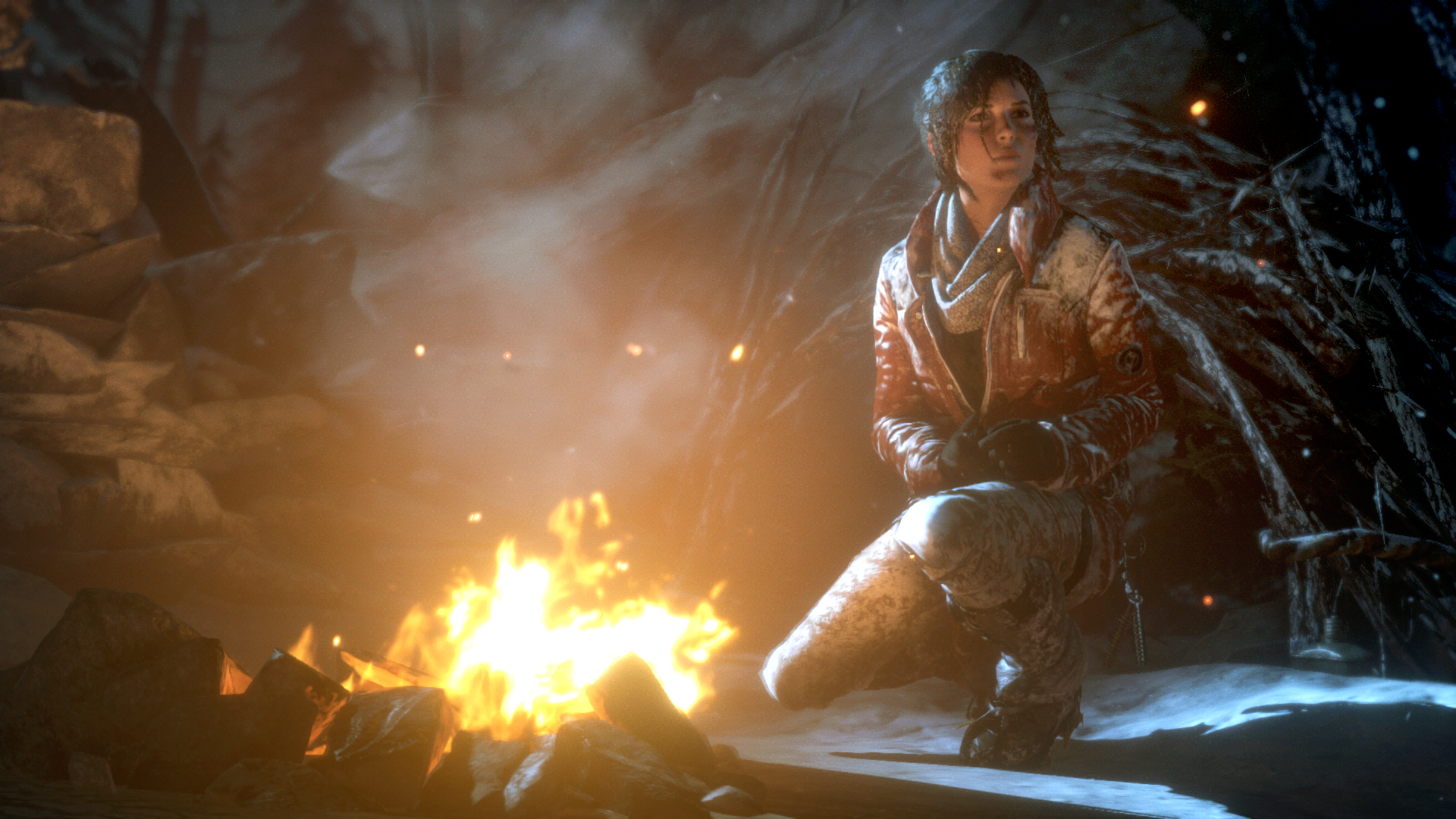
The antithesis of Sony’s linear, shoot-heavy Uncharted games, Rise of the Tomb Raider moves at comparably ruminative speeds, embedding you in its bleakly beautiful and broad wintry landscapes with only your wits and scant weapons. It’s both a study in how to craft a relatable protagonist whose every fight is tooth and nail, and the best puzzle-exploration-survivalism odyssey since Crystal Dynamics’ 2013 series relaunch.
[Xbox One, Xbox 360]
8. Metal Gear Solid V: The Phantom Pain
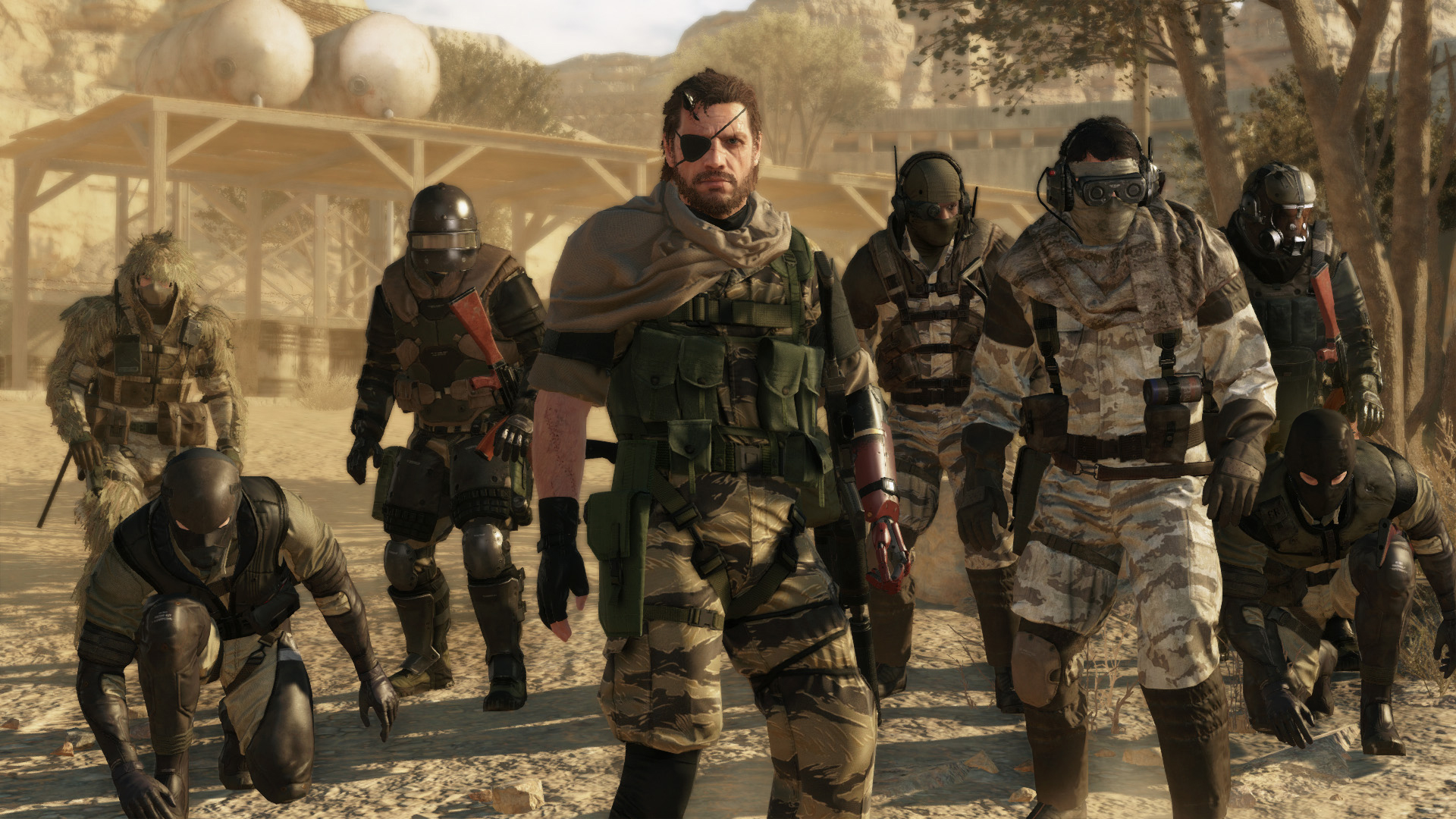
Metal Gear Solid creator Hideo Kojima’s series swan song turns out to be his finest work yet, a tactical stealth simulation wrapped in a colossal resource management puzzle inside a love letter to theatrical inscrutability. It’s a clandestine feast of open-world prowling, a tactical toybox staged in sprawling bulwarks bristling with eerily sentient enemies–the new pinnacle of stealth gaming, and a triumphant final act from one of our luminaries.
[PC, PlayStation 4, Xbox One]
7. Her Story
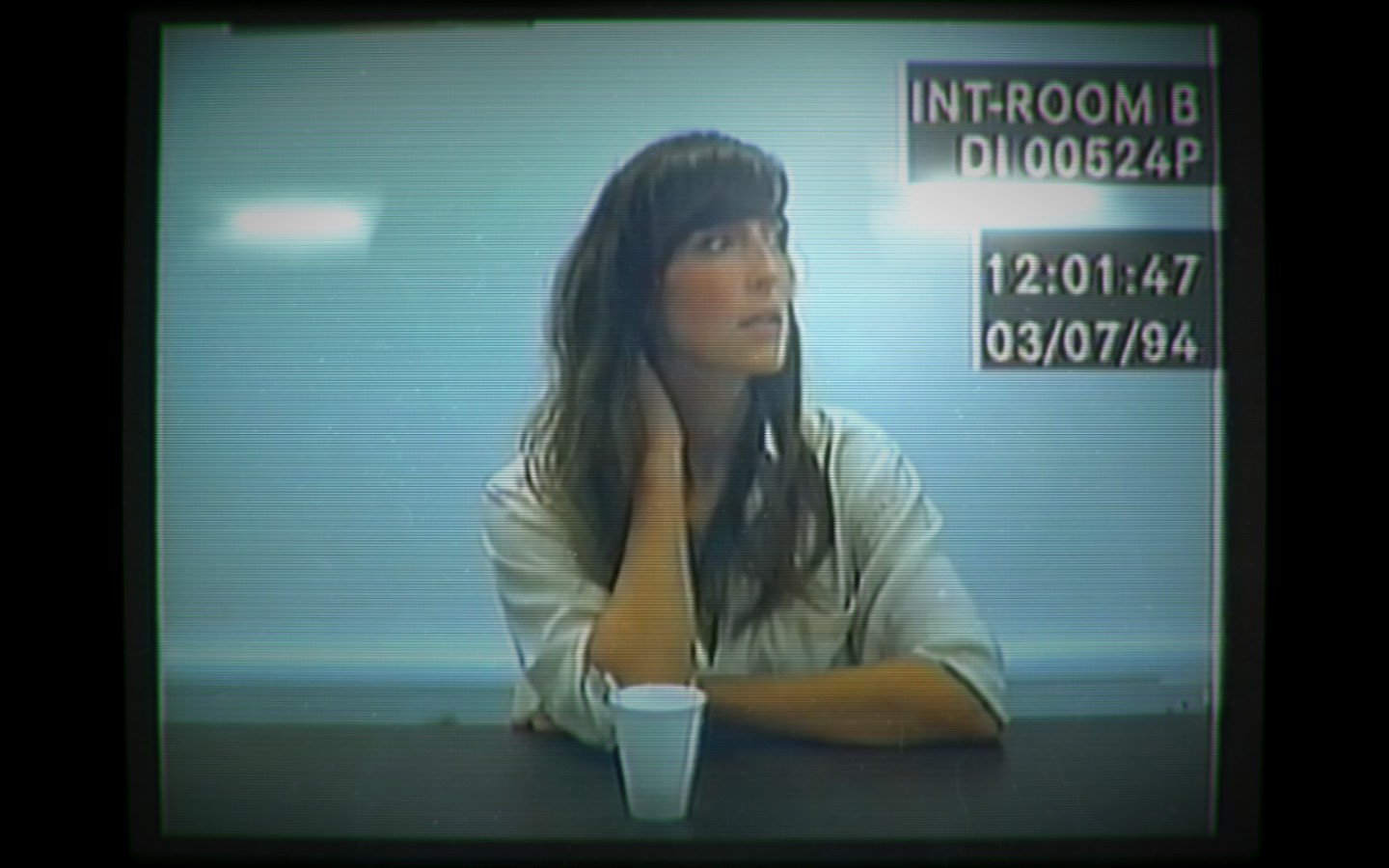
A whodunit subjectively pieced together by scanning full-motion video clips that require you to spill real-world ink turns out to be a superlative example of how to rivet employing the sparest techniques. It’s complexity from simplicity, a mesmerizing, hybrid investigative-voyeuristic experience where you observe a woman interviewed by detectives about a 1994 murder, unraveling (or deepening) the mystery by lighting on terms or phrases used to ply a vast but fragmented database, trying to puzzle out what happened — and why.
[iOS, Mac, PC]
6. The Witcher 3: Wild Hunt
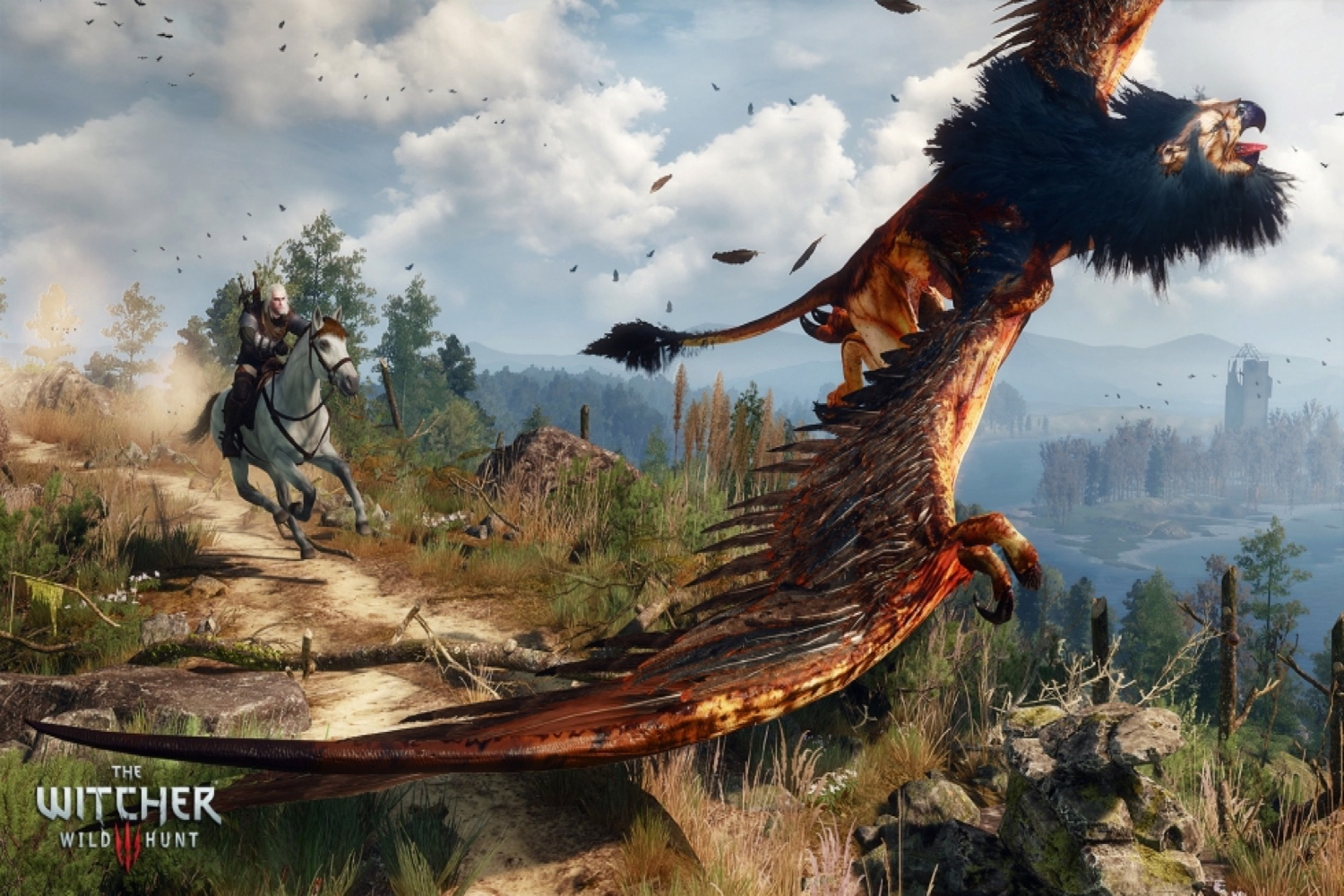
One way of talking about studio CD Projekt Red’s open-world magnum opus The Witcher 3: Wild Hunt might be “the game that made me like Fallout 4 less.” It’s that near roleplaying perfection, assuming you like slow-burn fantasy games about potion-chugging mutants and ethical courses of action with inexorably bleak outcomes. The Witcher 3 is to the rest of the video game roleplaying genre as George R.R. Martin to J.R.R. Tolkien.
[PC, PlayStation 4, Xbox One]
5. Super Mario Maker
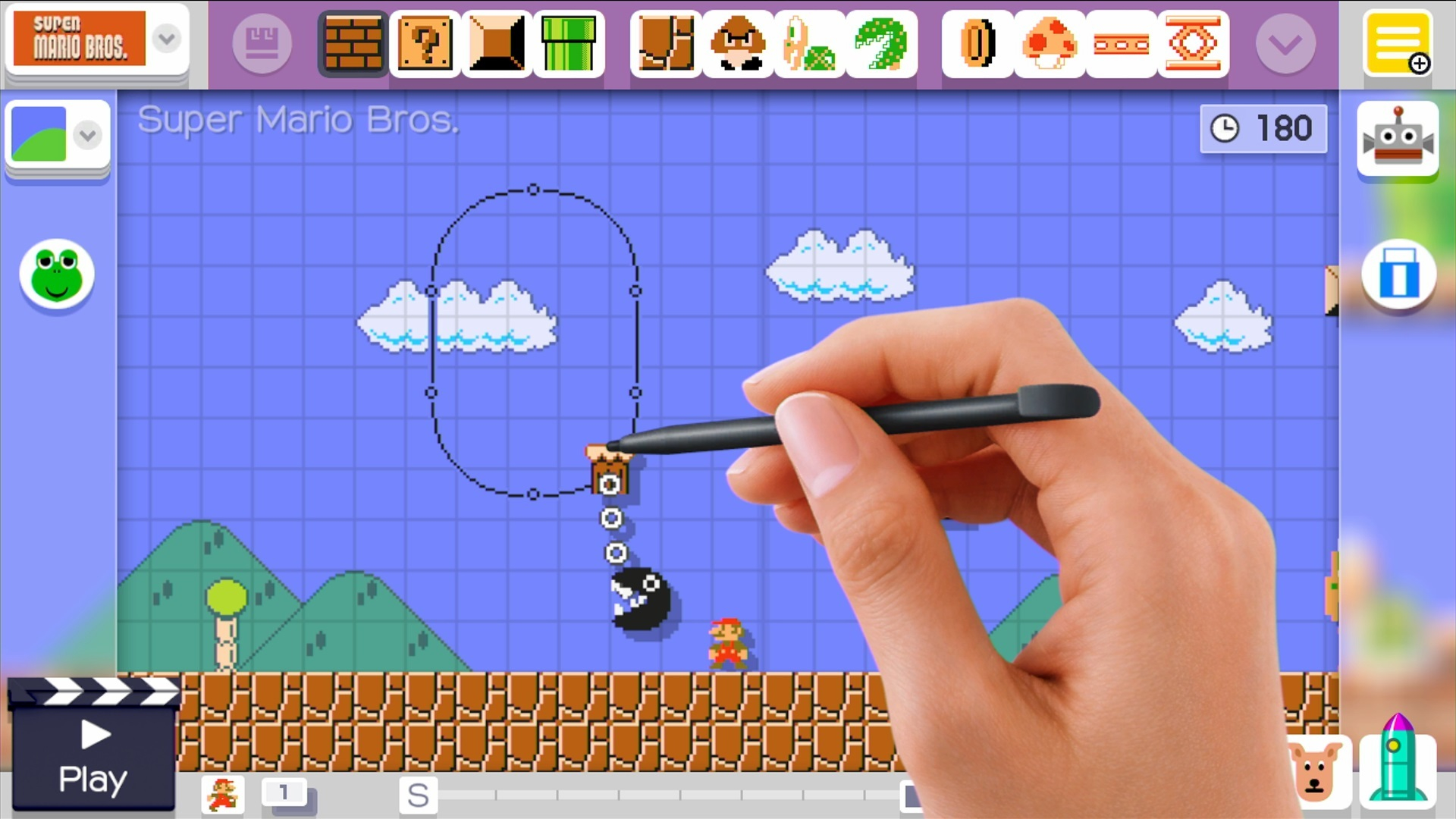
It’s Super Mario Bros., Super Mario Bros. 3, Super Mario World and New Super Mario Bros. U rolled into a rich but accessible toolbox, letting players create and share whatever bizarre level ideas they can dream up. Why it took Nintendo this long to release a Super Mario level maker is anyone’s guess, but if one game sells the two-screen idea of the Wii U–the stylus is essential here–it’s this one.
[Wii U]
4. Ryan North’s To Be or Not to Be
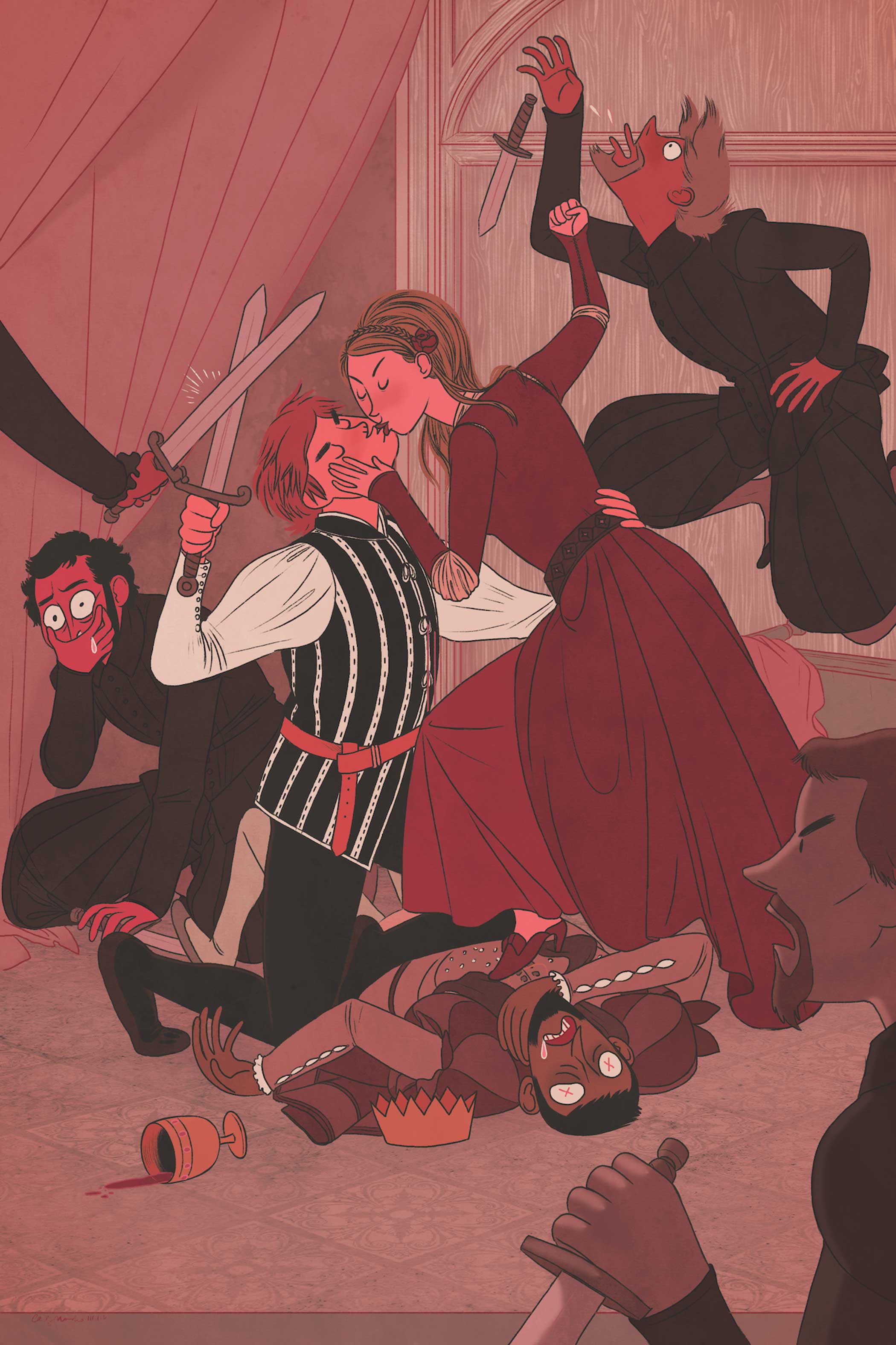
Ryan North’s To Be or Not to Be is the digi-fied version of a crowdfunded 768 page choose-your-own-adventure that came out a few years ago in book form. Studio Tin Man Games’ digital version is the quirkiest, funniest, most insightful retelling of Shakespeare’s Hamlet I’ve experienced in any medium. Multiply by a gazillion possible narrative routes, cultural takedowns and goofy cameos by everything from ghostly aliens to undead presidents. Like Inkle Studios’ 80 Days last year, it’s the smartest bit of interactive fiction you’ll flick through all year.
[PC, Android, iOS]
3. Batman: Arkham Knight
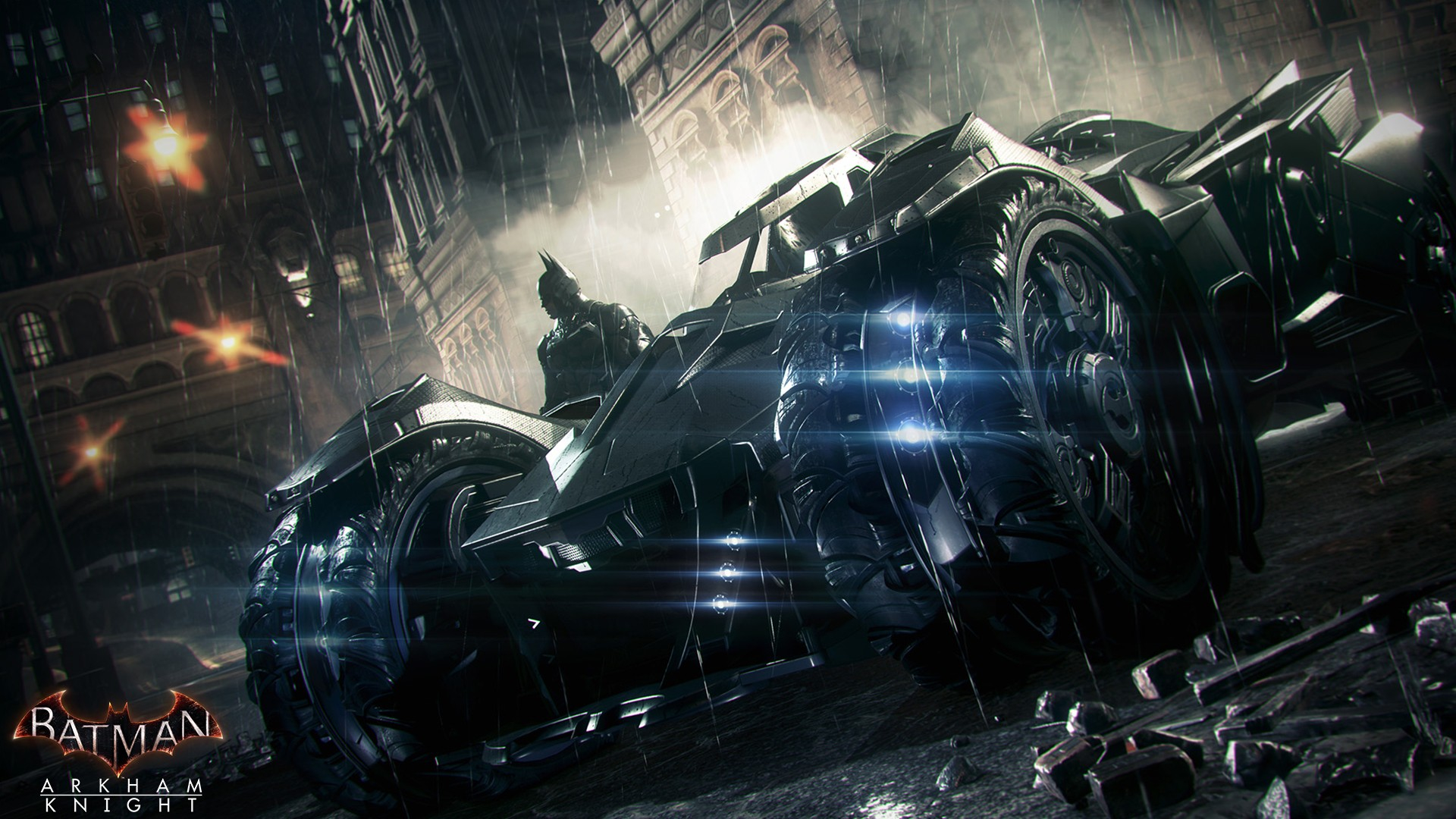
Rocksteady reversed the curse of the shoddy superhero tie-in when it surprised with Batman: Arkham Asylum six years ago. Arkham Knight is everything the company’s learned since cranked to 11 with a side of 12. And it’s not just a fitting fireworks finale that banks on past design glories rubbed in next-gen gloss: the studio took big risks by turning Arkham Knight into a buddy game, pairing Batman with the Batmobile, managing to make its inclusion both essential and exhilarating.
[PC, PlayStation 4, Xbox One]
2. Undertale
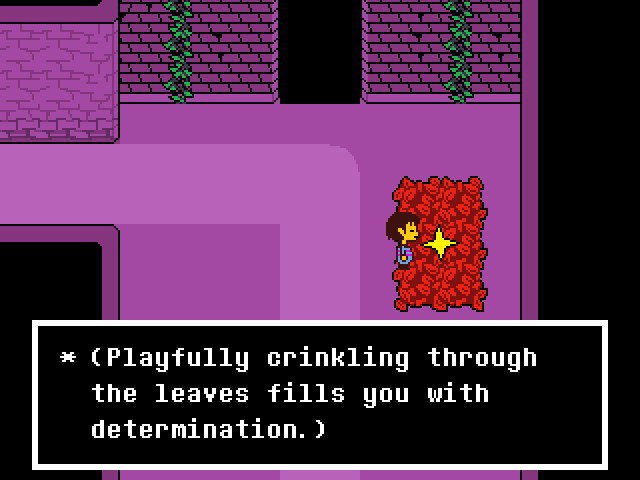
In the guise of a Japanese roleplaying game, Undertale is an investigation of what may really be happening when we play so-called Japanese roleplaying games. It’s a fantasy odyssey that deconstructs itself as you wander. It invites replays, winking at us like a smarter, subtler version of a “Let’s Play” YouTuber shouting insults at the screen. And it’s relentlessly, fastidiously obsessed with helping us see the consequences of the choices so often flippantly made, and the implicit violence we’re wont to do in the name of freedom.
[PC]
1. Splatoon
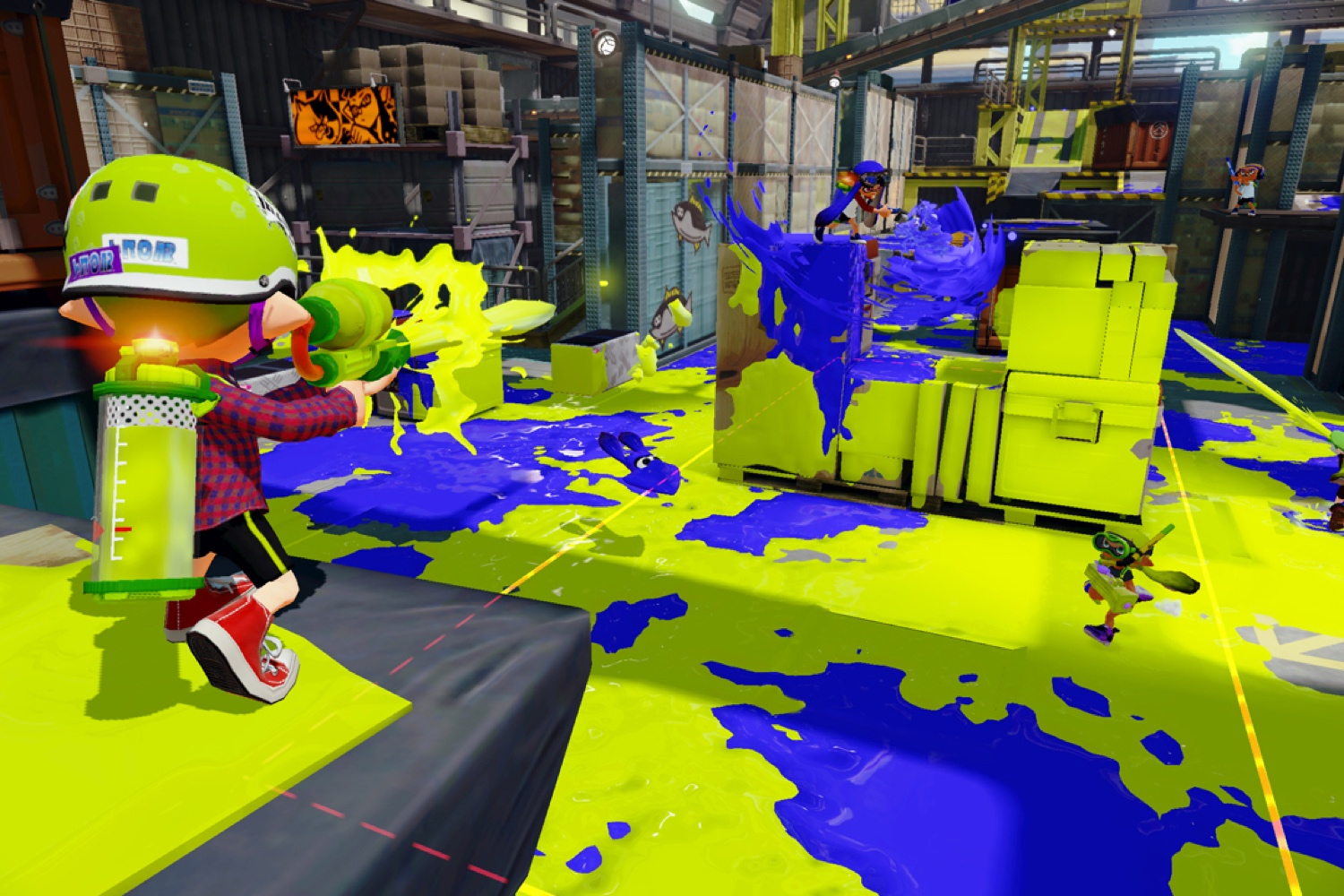
Nintendo’s best idea in years, Splatoon sees two squads of four players battling in skatepark-inspired arenas, outfitted with ink-spewing gadgetry and one imperative: to paint as much of their team’s color on the ground as possible before time runs out. There’s nothing else quite like it, nor the cathartic dopamine jolt to be had when you sail up a paint-smeared quarter pipe, an Inkzooka at the ready, leap over the edge, take aim with your weapon, and reduce a startled opponent to goo.
[Wii U]
You can re-roll once, but this is a good roll, and you have at least two more options we need to talk about. Since you’re the doctor, your special ability (on a roll of 5 or more) lets you add one health back. Or since you’re in the maintenance module, you can drop one of the 5s into a box that will reduce your “stress” level, feeding into another critical aspect of the game that happens between turns.
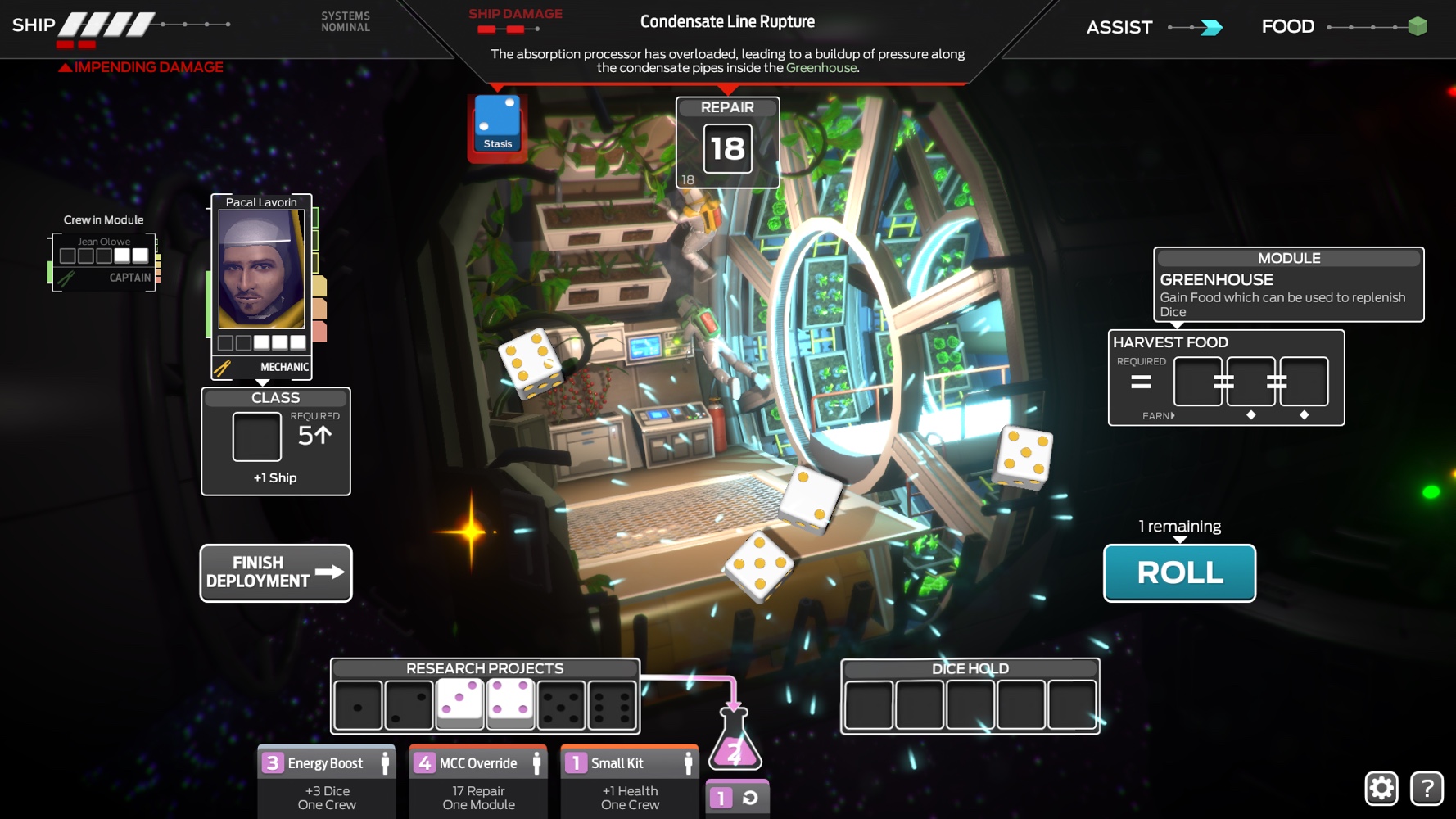
Too much dice talk? Tharsis may not be for you, because it’s a game of chance and wager glommed onto another game about mental mapping and resource allocation and research investment, all guided by handfuls of either bone white or bloody red dice. Literally bloody, the stuff dribbling and pooling as the dice tumble across the throw floor. Did I mention there’s cannibalism?
In that sense it’s not really about saving a crew en route to Mars from barrages of micrometeoroids or health-zapping modular infernos. Instead, it’s more like the zero sum game real astronauts play, where entropy throws curve balls and a single whiff can be lethal. It reminded me of the increasingly crazed events in Neal Stephenson’s Seveneves, where the moon explodes and humanity has to survive in a mishap-plagued orbital ark, staggering from catastrophe to catastrophe. Every scenario in Tharsis feels like that.
Speaking of, let’s finish our example. Remember the 14 repair points? You could easily knock those out with your 6 and both 5s, but that leaves you just 2, which you can’t re-roll (it’s locked in stasis!), relegating it to research if there’s a spot open (research lets you save up dice to trigger bonuses that could be something little, like conjuring an “assist” to forestall a future hazard, or something big, like adding 3 points to ship integrity).
You could alternatively shave a little off those 14 points, say just the 6, then use the two 5s to fill your personal ability (add health) or module (reduce stress) buckets, then have another crewmate pop over to chisel away at the remaining 8. Or let’s imagine a slightly different scenario, where the ship has a few more integrity points: You could just let the event play out and take the damage, because the benefits of doing other things (health replenishment, stress reduction, research investment) are greater.
“What’s really the best thing to do?” is the circle you have to square, because it’s the “obvious” threat only half the time.
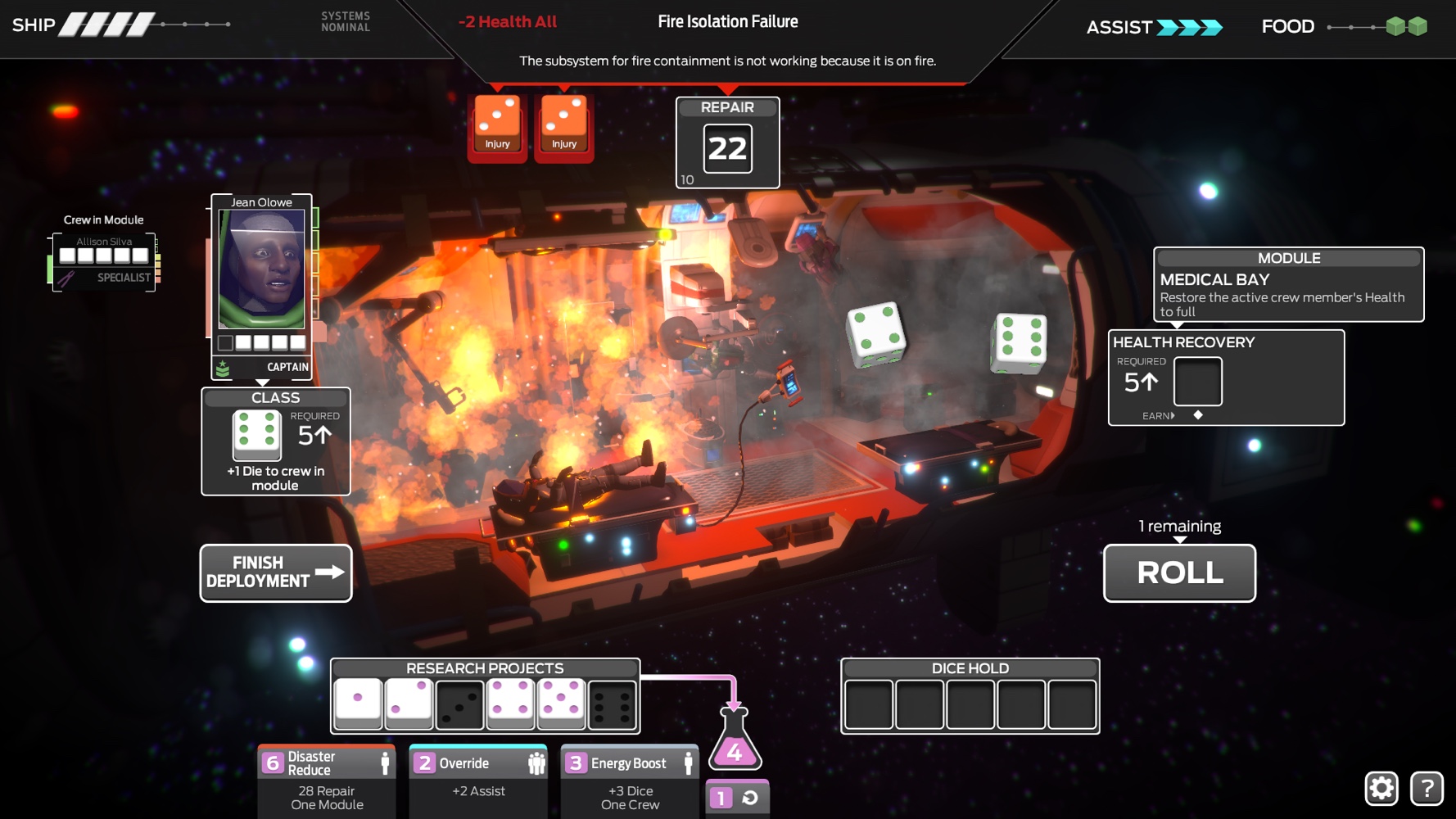
Tharsis asks you to make decisions like this up to four times per turn, once for each crew member. Then it shuffles you over to a “choices” interlude, where you can use accumulated food to buy more dice, or in the later turns, if food’s scarce, chow on dead crewmates. Or if there’s no one left to eat, just kill someone!
Trouble is, killing crewmates (as well as triggering hazards during dice rolls) increases stress, and that way lies madness. Let stress levels run high, and instead of helpfully benign choices between rounds, say “Would you like to trade one ship point for one health point?” you might be offered a huge pile of dice or health, but only if you butcher a compadre.
If you like brutally exacting clockwork games with appalling dilemmas, you’ll adore Tharsis. As Keith Burgun put it in a terrific piece on clockwork design for Gamasutra, “Decision-making is actually a pretty special thing – it only happens when a person understands the system enough to do something better than just make a blind guess, but also doesn’t understand it so well that they basically just have the solution.”
There’s plenty of blind guessing or flat misguided thinking you’ll have to pour into Tharsis before you’re making studied wagers or educated maneuvers. Like I said, there’s no margin for error, and the number of potential scenarios is all but infinite. And yes, as Burgun notes in his essay, a clockwork game is not a puzzle designed to be “solved.”
But break a clockwork game like Tharsis down to its constituent choices and it’s entirely puzzle-like. There’s always a best solution, the goal posts just move each time you do, the puzzle reconfiguring as the variables realign, the harrowing, enthralling, maddening path forking and re-forking until the end.
5 out of 5
Reviewed on PlayStation 4
More Must-Reads from TIME
- Donald Trump Is TIME's 2024 Person of the Year
- Why We Chose Trump as Person of the Year
- Is Intermittent Fasting Good or Bad for You?
- The 100 Must-Read Books of 2024
- The 20 Best Christmas TV Episodes
- Column: If Optimism Feels Ridiculous Now, Try Hope
- The Future of Climate Action Is Trade Policy
- Merle Bombardieri Is Helping People Make the Baby Decision
Write to Matt Peckham at matt.peckham@time.com